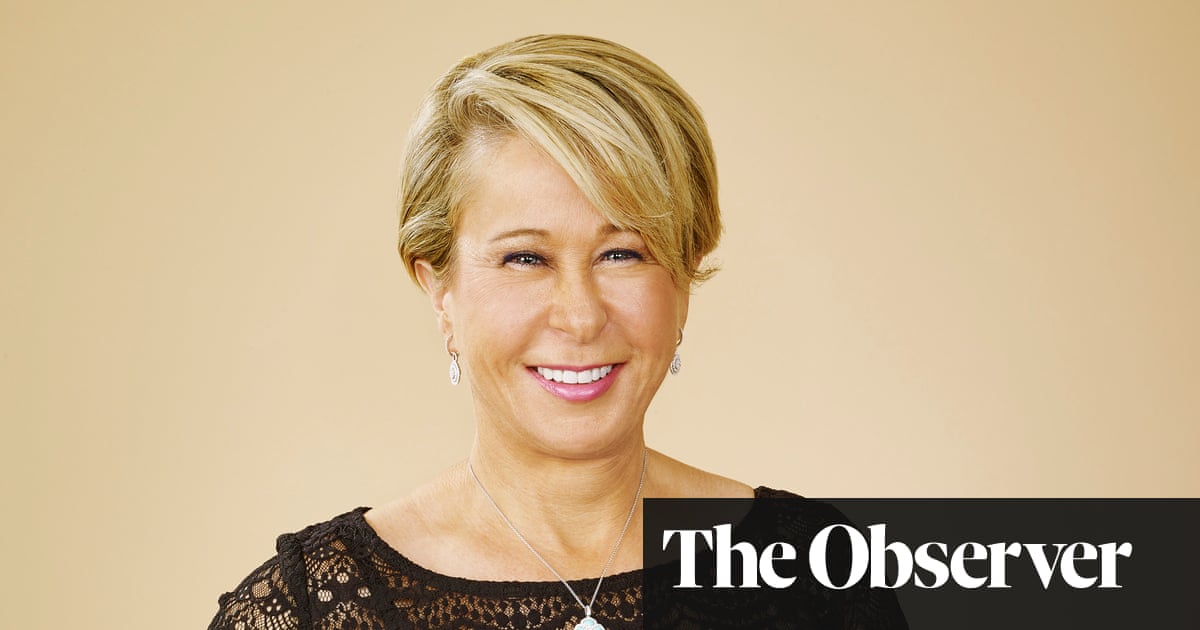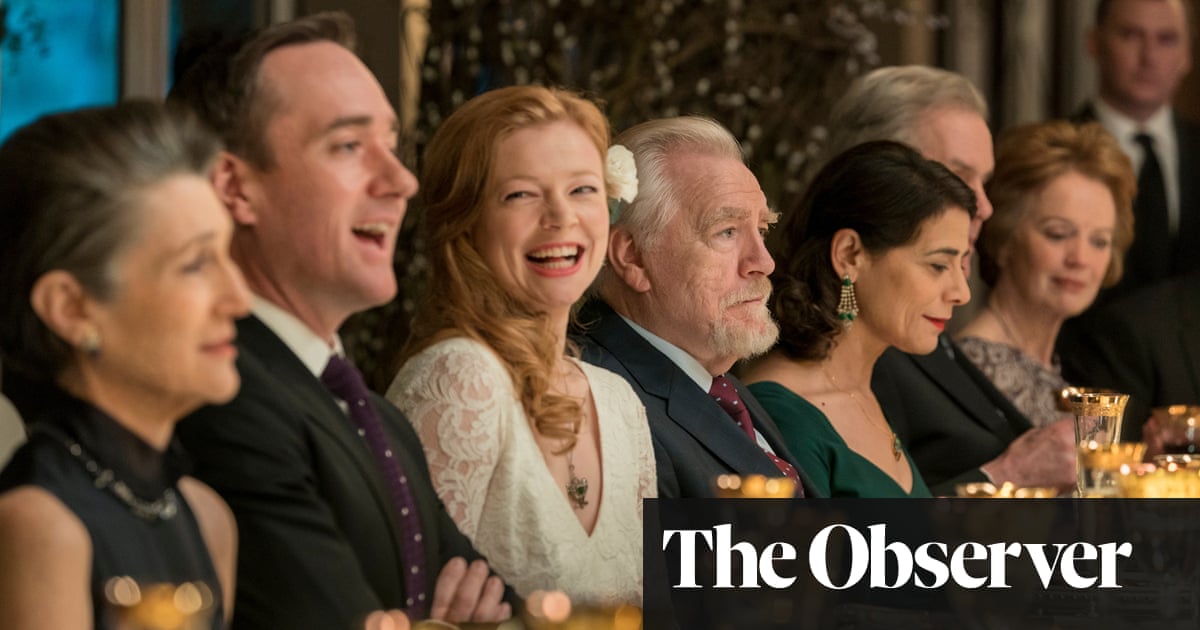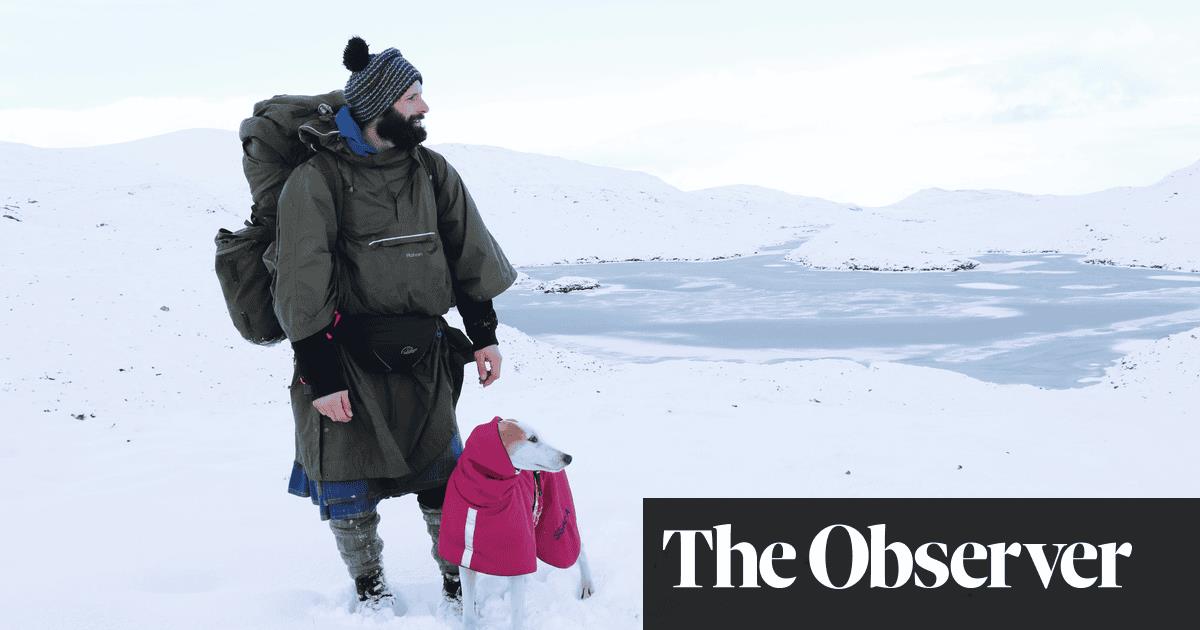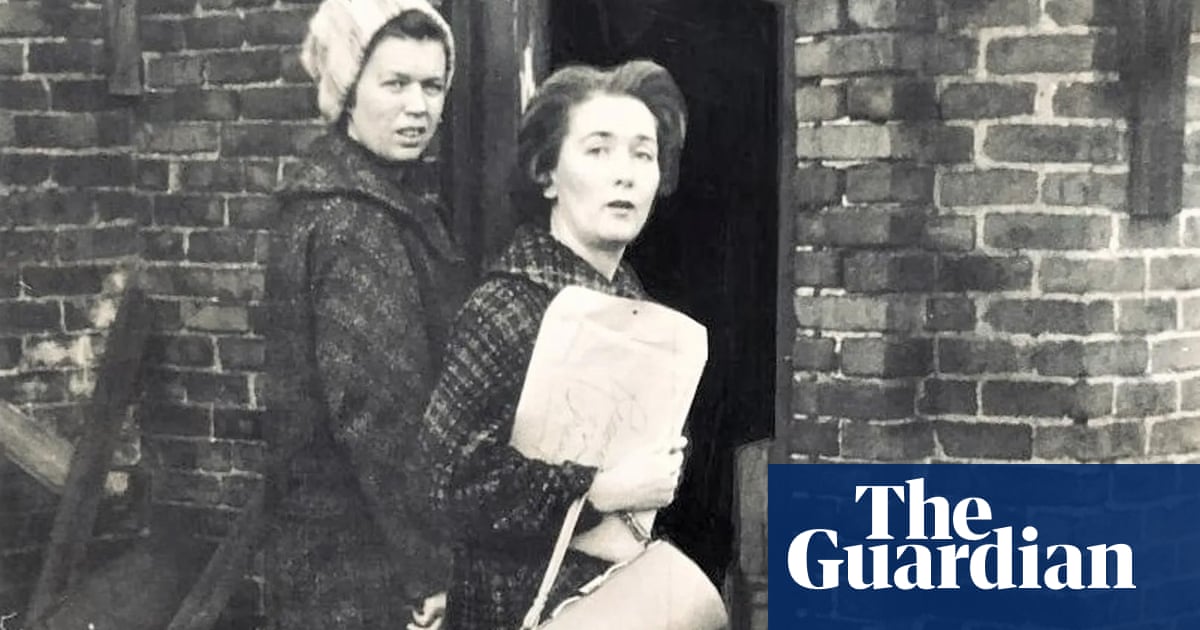
Paul Smith, 60, played Gordon the Gopher on CBBC from 1986 to 1993
I was the producer of The Broom Cupboard, with Phillip Schofield, which wrapped around the children’s programmes on BBC1 for an hour-and-a-half each day. No one at the BBC paid us much attention, so we’d just try out loads of ideas. Phillip was once sent a puppet by a viewer. Originally his arms and legs were long enough to wrap around a person, but one of our bosses didn’t like that so we got them shortened – and that became Gordon. We thought he looked like a gopher, but we weren’t really sure. He wore out pretty quickly, so we got the BBC to make more. The new ones were too bright for the camera, so I’d dull the colour and matt the fur by using him to clean the floor.
The Broom Cupboard was in the continuity suite, intended for one person and a microphone to announce what was coming up next on the BBC, so I’d sit right next to Phillip, just out of shot of the fixed camera, and bring up my arm. Things got more complicated on Going Live!, because I was underneath a sofa, and Gordon had more freedom to move. I was also producing Points of View at that time, with Anne Robinson. During a cartoon break on Going Live!, I ran to my office six floors away to collect a fax from Anne, but the lift wouldn’t work back down and I didn’t make it back, so when the cameras started rolling again Gordon was just sitting there, slightly flopped. Phillip saw me behind the camera and said, quick as a flash, “Gordon, if you’re not going to speak to me, I’m not speaking to you,” so the camera could pan away. Phillip is a master of live TV, although he couldn’t stop himself laughing when Emma Freud accidentally set Gordon on fire during a cookery item. I thought, “That’s not just Gordon, that’s me!” – I had to slap him on the desk to extinguish him. Another time a puppy appeared to mount Gordon. That’s not quite what happened, but it looked like it. You’ll find it on YouTube.
We created a little bit of popular culture, which made us very proud. Brian Conley did this sketch on ITV taking the piss out of us. We couldn’t believe it. We were like, “We’re famous!” Gordon couldn’t really do any personal appearances because he’s quite small. He and Phillip switched on some Christmas lights once, but that’s about it. I’m now BBC Radio’s head of editorial standards, so if Gordon is needed, one of the CBBC puppeteers will do him. I can’t crouch under desks any more without doing myself an injury.
I think Gordon is desperately jealous of Phillip’s success. He really feels that he should be back up there with his own chat show. Unfortunately, Gordon got a bit too interested in the old cactus juice, which put people off working with him – you know how it is. And once you’ve been down there, it’s pretty hard to claw – or should I say paw – your way back up into the mainstream.
Louise Gold, 63, performed on the Muppets and the Henson Company from 1977, and Spitting Image from 1984
I’d put on marionette and Pelham puppet shows in the shed when I was little, and I went to stage school because I wanted to be an actress. I did Joseph and Hair. One day, my agent sent me to audition for The Muppets in Elstree, purely because I was 5ft 9in. Jim Henson was 6ft plus, and the sets were high so they could operate the Muppets above their heads. When they put a Muppet on my hand, I said, “I’ve never done this before,” and they said, “It doesn’t matter.” I could do voices and sing, and they thought I had some aptitude, so I joined in the second series. I played Annie Sue Pig, who was very young and talented, so Miss Piggy hated her. I was 20 and thought I was talented, so she was basically me.
I once did the Royal Variety dressed head-to-toe as a big orange monster called Mean Mama. Prince Charles came down the line and said, “Are there any women Muppets?” I’d been told to stay in my monster costume, so I stepped forward and, in a monster voice, said: “Prince, Prince!” and gave him a massive hug.
Later, Roger Law and Peter Fluck, the creators of Spitting Image, got in touch and said, “You’re the English Muppet, we’re starting this new satirical puppet programme, can you help?” I did help get some wonderful performers on board, and I did a lot of the female voices and puppetry. the Queen was my favourite, partially because she was slightly smaller and more flexible than the others. The puppets were human-sized, so they could wear clothes from the charity shop. Peter and Roger didn’t seem to care how hard they were to operate, so long as they looked good. We made the Queen quite left-wing – she wore CND badges – and played on the rumour that she hated Thatcher. She was very sympathetic and kind of the hero. I felt very fond of her, which is why I’m thrilled I’ve still got the puppet. Long after Spitting Image had finished, I was doing Mamma Mia and some good friends came into my dressing room. There was a news item on TV about the puppets being sold at Sotheby’s. They bought her for me. I now have my very own Queen, tucked away in a suitcase. I’ve had an incredibly fantastic career doing theatre, film and TV, all of which I love.
You get away with a lot more as a puppet. When I did another Henson show in Newcastle called The Ghost of Faffner Hall, the Queen Mother came to visit. I played the main ghost, Fughetta Faffner, so still as the puppet in character I said to the Queen Mother, “It’s not often that I meet someone who’s as old as I am.” She didn’t laugh.
Ronnie Le Drew, 72, has played Zippy from Rainbow since 1973
I had the puppet bug from a young age. I was brought up in a block of flats in south London. I’d put on puppet shows to entertain my friends with an upturned table and a wind-up gramophone. I left school in 1963, age 15, to work as an apprentice at the Little Angel Theatre in Islington. Pamela Lonsdale, the original producer of Rainbow, came to visit in 1970. They were doing a new pre-school, British version of Sesame Street, and I was preparing for a new show called The Hubble Bubbles. One of the puppets, Grumble Bubble, was lying on the workshop bench. He was round and brown with a big zip for a mouth, to zip him up if he grumbled too much. I assume someone must have seen it and pinched the idea.
The first series of Rainbow was presented by David Cook in 1972, and featured a smaller Zippy, played by Violet Philpott and voiced by Peter Hawkins – the voice of Captain Pugwash and Bill and Ben. It featured two other puppets – Sunshine and Moony – and a rather sinister-looking Bungle. But the second series is the Rainbow everyone remembers, with a friendlier Bungle, a larger Zippy and his new friend George the Hippo. Zippy and George were both voiced by Roy Skelton. I got paid £125 a week, which was a fortune to me. I’d sit on a low chair behind a high table with one arm in Zippy’s head and the other in his arm, next to Valerie Heberden, who did George. I got so used to Roy’s voice it became second nature to lip-sync Zippy.
Zippy would get quite dirty because he’s made from towelling, so we’d have a new one every second series. They put the old ones in the crusher. When Rainbow finished in 1997, Geoffrey, Bungle, George and Zippy toured the Rainbow Disco Roadshow. We’d play 70s and 80s records to student unions and nightclubs all over the country. “Hello, Oxford!” That was great fun. Sadly, Roy Skelton died a few years ago, so I now do the voice of Zippy as well. Zippy’s been on Sunday Brunch, and he was on The Last Leg, because they said Josh Widdicombe sounded like him. He once did a Marmite commercial, but Zippy hates Marmite! And George and Zippy were on The Weakest Link. I also worked on Labyrinth with David Bowie, and The Muppet Christmas Carol with Michael Caine, and The Dark Crystal: Age of Resistance, for Netflix. I’m an honorary associate at the Little Angel Theatre, and president of the British Puppet and Model Theatre Guild – the oldest puppet organisation in the world.
Zippy and Me, by Ronnie Le Drew, is out now, priced £10.99. Buy it for £9.56 at guardianbookshop.com
Dave Chapman, 47, played Otis the Aardvark on CBBC from 1994 to 1999
I grew up watching The Muppet Show and the Star Wars movies. I remember saying to my mum, when I was five, “That’s what I want to do.” I trained at London Academy of Music and Dramatic Art and won a chance to train at the Jim Henson Company in April 1994. My first job was playing a wolf on Wolf It on ITV. Two weeks later, I auditioned for Otis and started a couple of days later. I’d never done live TV before. There’d been a quiet, puppetless period on CBBC, while Zoe Ball and Toby Anstis were presenters. The producers at the BBC said, “Let’s see what happens when we put a puppet with these guys.” So they had Otis specially built to join Zoe and Toby on screen.
My mates would go, “All Dave does for work is wave a puppet around.” But I also had to write the sketches, make the props, and answer all of Otis’s fan mail. I have just filmed The Dark Crystal for Netflix, and it turns out that my assistant had written a letter to Otis when he was 11.
Otis once went to Buckingham Palace and Downing Street in a big flight case, which makes you interesting for security. They go, “What’s in the trunk?” and either go, “OK,” or turn into nine-year-olds and you end up on your knees with your hand up a puppet. I went through five Otises. The reticulated foam disintegrates unless it’s kept at the right temperature. There’s a bit of his head and fur left, but that’s about it. Otis got his name from the company who made the lifts at the BBC. Bizarrely, the Otis Elevator Company weren’t too happy about it.
When I started in 1994, Definitely Maybe [the debut album by Oasis] had just come out and Britain was the coolest place on the planet. The BBC was at the very hub. I’d do Otis by day, sneak in to watch Radiohead on Jools Holland or watch Knowing Me, Knowing You by night, and be back for work the next day. We filmed in studio TC9, which came after the Broom Cupboard. They filmed Film 94 and Points of View next door. I remember seeing Jarvis Cocker and Quentin Tarantino in the corridor. We saw Woody Allen looking through the studio window. Zoe Ball was like, “I can’t believe it!” It’s funny to think the BBC was at the very centre of Britpop and Cool Britannia and I was doing this goofy puppet.
I went on to work elsewhere. I’ve had numerous roles in the new Star Wars films. I did Yoda’s hands in The Last Jedi, and I’m the Stormtrooper who throws Hans into the pit with Chewie in Solo; and I’m one of the two puppeteers it takes to perform BB-8. When Otis retired, we said he’d gone to work in the BBC canteen. I assume he still works there.
Christina Brown, 56, played Edd the Duck on CBBC from 1989 to 1993
I joined the BBC as a teenager to be a secretary on Blue Peter, and I became an assistant producer on The Broom Cupboard by 25. Phillip [Schofield] and Gordon [the Gopher] were on top of their game and had left to do Going Live!. Andy Crane, who had come in from local radio to his first job on television in The Broom Cupboard, sensibly said, “I don’t want a puppet.” I’d bought this duck head from a Hong Kong street market and sewed on a body. As a joke, and without much warning, I popped Edd up live on air. The snippier Andy was with Edd – “Get out of the Broom Cupboard!” – the more determined Edd was to stay.
Edd got his trademark green hair when I was delayed in an edit, so the viewers were told Edd was at the hairdresser’s. I raced from the basement to the fourth floor and finally made it on air. Andy ripped a cloth off Edd to reveal a green wool mohican I had left over from making punk teddy bears on Blue Peter. Andy burst out laughing. Edd put his little webbed fingers over his eyes and started to cry. Andy put his arm round his distressed friend and went, “Fella, you look awesome!” And that was it, Andy and Edd were a team.
Edd once threw a huge pair of knickers at Tom Jones, and he got told off by Jeremy Paxman for annoying his cleaner. So, occasionally, we were carpeted. I’d get a warning from the sixth-floor bosses: “It’s too much, Christina, rein it back in.” But Edd was petulant. He’d sulk on air all afternoon because he’d been told off. Then I’d skulk along the sixth-floor corridor and be met with withering looks and a twinkle in the eye.
Gordon travelled in a flight case, but Edd was carted around in a plastic bag. There was only one Edd, so if he got gunged, I just washed him in the ladies’ and left him to dry on the office door handle. If his foot fell off or his beak split, I sewed him up. He hasn’t done anything since, because Andy Crane and Andi Peters made him so brilliant. Edd quacked phonetically. It was like a language. They could actually understand and translate him. Without those two, Edd would be very disappointing.
I left the BBC in 2012 as executive producer for children’s TV to start a holiday home business in Cornwall. Edd is enjoying his showbiz retirement by the sea. Dawn French lives nearby, and they constantly argue over who had the most illustrious career. Not everybody loved Edd. We once met Princess Margaret at the Royal Variety Show. I heard her say, “Take it away.” I was like, “What?” And then I heard it again. “Take that duck away right now, you’re quite putting me orff.” I actually cried – I thought she could have me arrested.












